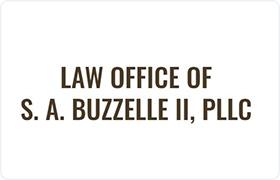Buckeye Collection Lawyer, Arizona, page 3
Sponsored Law Firm
-
 x
x

Click For More Info:
-
Law Office of S.A. Buzzelle II, PLLC
14050 N 83rd Avenue Suite 290 Peoria, AZ 85381» view mapBankruptcy & Debt Law Your Trusted Bankruptcy Attorney
If you are in need of legal services for matters relating to bankruptcy and divorce, rely on Law Office of S. A. Buzzelle II, PLLC in Peoria, AZ.
800-873-4991
Michael R Scheurich
Real Estate, Collection, Bankruptcy, Bankruptcy & Debt
Status: In Good Standing Licensed: 45 Years
Michael R Scheurich
Commercial Real Estate, Litigation, Collection, Bankruptcy & Debt
Status: In Good Standing Licensed: 45 Years
Rachael Blyth Eisenstadt
Construction, Litigation, Defense Contracts, Collection
Status: In Good Standing Licensed: 12 Years
William H Wynn
Workers' Compensation, Criminal, Collection, Mesothelioma
Status: In Good Standing Licensed: 11 Years
William H Wynn
Workers' Compensation, Criminal, Collection, Mesothelioma
Status: In Good Standing Licensed: 11 Years
Kevin J Blakley
Real Estate, Bankruptcy & Debt, Litigation, Collection
Status: In Good Standing Licensed: 38 Years
Andrea Ho Landeen
Construction, Real Estate, Collection, Bankruptcy & Debt
Status: In Good Standing Licensed: 18 Years
Anthony Frank Pusateri
Bankruptcy, Litigation, Electronic Commerce, Collection
Status: In Good Standing
Isaac M Gabriel
Litigation, Collection, Bankruptcy, Bankruptcy & Debt
Status: In Good Standing Licensed: 22 Years
 Stanley A. Buzzelle II Peoria, AZ
Stanley A. Buzzelle II Peoria, AZ Practice AreasExpertise
Practice AreasExpertise
